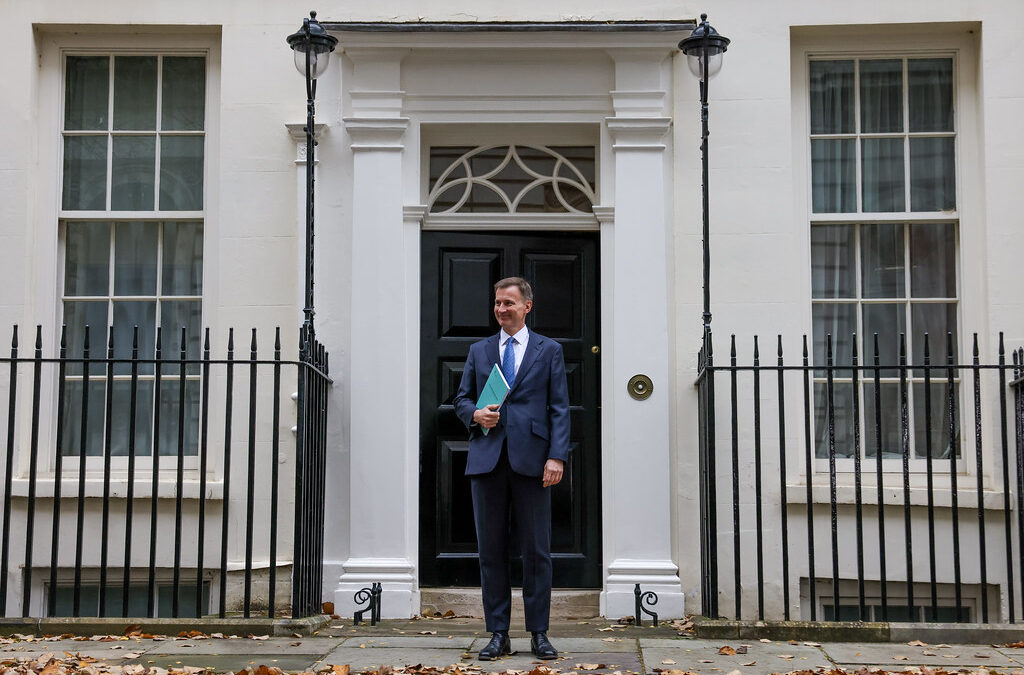The Chancellor presented the Autumn Statement yesterday setting out the Government’s plan for a stronger economy. This supported British businesses by removing long-term barriers to investment, delivering energy security and the Net Zero transition, investment in advanced manufacturing and delivering a world class education system enabling a highly skilled workforce that meets industry needs.
CPA Economics Director, Noble Francis, said:
“With one eye on the General Election next year, this was always likely to be an Autumn Statement primarily aimed at helping working households and businesses. Jeremy Hunt highlighted that lower personal and business taxation will play a central role in the Conservative party’s approach for next year’s election and gave more clarity to the Government’s updated approach to boosting growth. A cut in the National Insurance rate from 12% to 10% and ‘Full Expensing’ for business investment were the two key headlines from the Chancellor’s speech in the House of Commons today.
“For UK construction product manufacturers, it is the ‘Full Expensing’ announcement that will resonate most with them. CPA was a key part of the letter calling for this measure to be made permanent and is pleased to see this confirmed today. This will allow companies to invest in the UK to reduce their tax by up to 25p for every £1 they spend on plant and machinery. Other announcements today that will also be of interest to our industry include:
- More funding for apprenticeships and skills.
- Planning reforms to allow councils to recover the full costs of planning applications – provided they meet prompt deadlines.
- A consultation on allowing any house to be converted into two flats – provided the exterior is respected.
- Speeding up and providing more certainty for developers and investors on infrastructure delivery.
- Support for strategic manufacturing sectors, manufacturing SMEs and green industries.
- New Investment Zones announced in the Midlands, Manchester, and Wales.
“While these announcements are helpful, the Chancellor could have gone further with industrial policy by providing a clearer strategy on key growth areas. Equally, more could be done on housing supply and home buying, as well as energy efficiency in housing such as introducing a green stamp duty. While the announcements on improving infrastructure delivery are welcome, how effectively they will translate into reality on the ground is yet to be seen. The Government published a policy paper ‘Getting Great Britain building again: Speeding up infrastructure delivery’, which demonstrates that it finally understands the difficulties associated with delivering major infrastructure projects. It is disappointing, however, that Government hasn’t published an updated National Infrastructure and Government Construction Pipeline since September 2021 and announced in the Autumn Statement that there also won’t be a revised National Infrastructure Strategy until next year. This lack of certainty over the project pipeline means that it is difficult for all firms in the construction supply chain to justify signing-off significant new investments in skills and capacity, especially after all the Government announcements of infrastructure projects being paused, delayed and cancelled this year.
“This Autumn Statement marks a step in the right direction from Government for the construction industry, but how much of it is electioneering as opposed to real action is not yet clear.”
Mark Reynolds (Co-Chair, Construction Leadership Council) welcomed the Statement:
“The Construction Leadership Council warmly welcome the focus on speeding up infrastructure delivery in yesterday’s Autumn Statement. We are pleased to see alongside the Autumn Statement an announcement of a rapid review of productivity in the construction industry as well as an infrastructure ‘Star Chamber’ reporting to the highest level of government. In our recent productivity report, we estimated a potential £45bn of savings and additional value could be generated by improving productivity across the sector.
Following our engagement with the Treasury, we noted the positive change in direction on R&D Expenditure Credit for subcontractors in relation to ‘contracting’ out. However, we still require urgent clarity relating to which contract types this impacts and who will still be able to claim relief in the construction supply chain.”
FIS CEO Iain McIlwee responded.
“There are some helpful sounding bits, but I don’ t think we expected or got much from the Statement.
Taking a strong stance on Late Payment is welcome and definitely a step in the right direction with sanctions are clearer, this is what we asked for through the consultation. But, the fact remains that 45 days is still late and an average of 55 days for a ban to kick in means some are likely to be waiting even longer for money that they are entitled to. I am always wary when I see a Government commitment (reducing the average to 30 days) to be “introduced in the future” – an average of 30 days should be achievable now for responsible companies and we should be reflecting this in our procurement policies.
The R&D Tax Credit changes have potential as it has been a confusing arena. This may help to drive innovation and investment in the supply chain (particularly in digital process improvement), but the biggest inhibitor to innovation through the supply chain is inefficient and ineffective procurement and I am not convinced that the Procurement Act is really getting to grips with the underlying problem. It would also be nice to see extended to encourage more businesses to modernise their space, which can also help to enhance productivity.
Again more funding to get people into apprentices may be useful, but we need to understand how this cascades. The systemic issues always seem to make it so difficult to utilise the funding or don’t provide enough incentive to over-ride the costs that employers actually face. The subsequent comments around the Shortage Occupation list are a concern as it suggests that they are really not grasping the extent of the skills shortage we are facing.”
The Construction Products Association have prepared a detailed briefing on the Statement which is available to FIS Meembers here Statement Write-up

